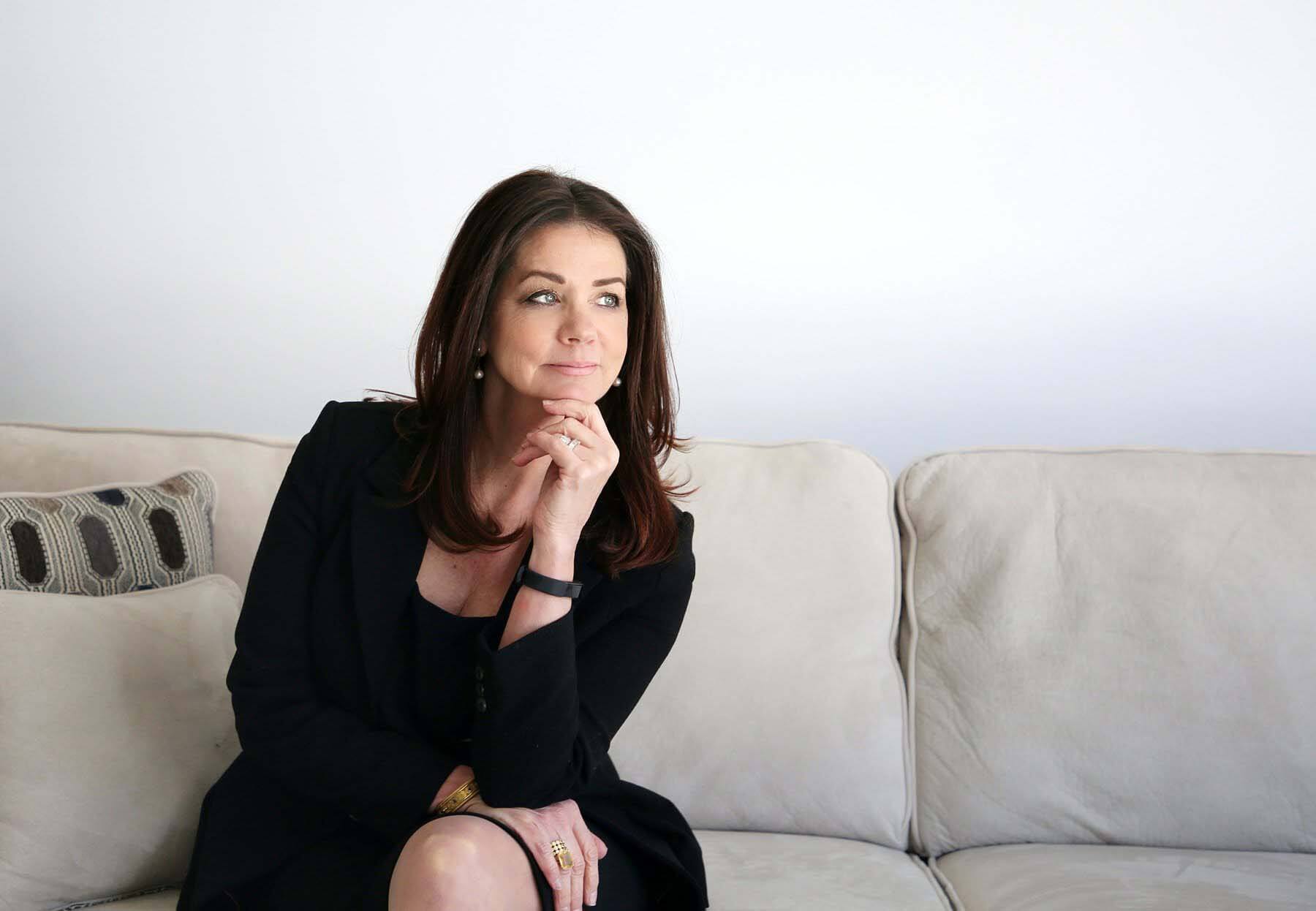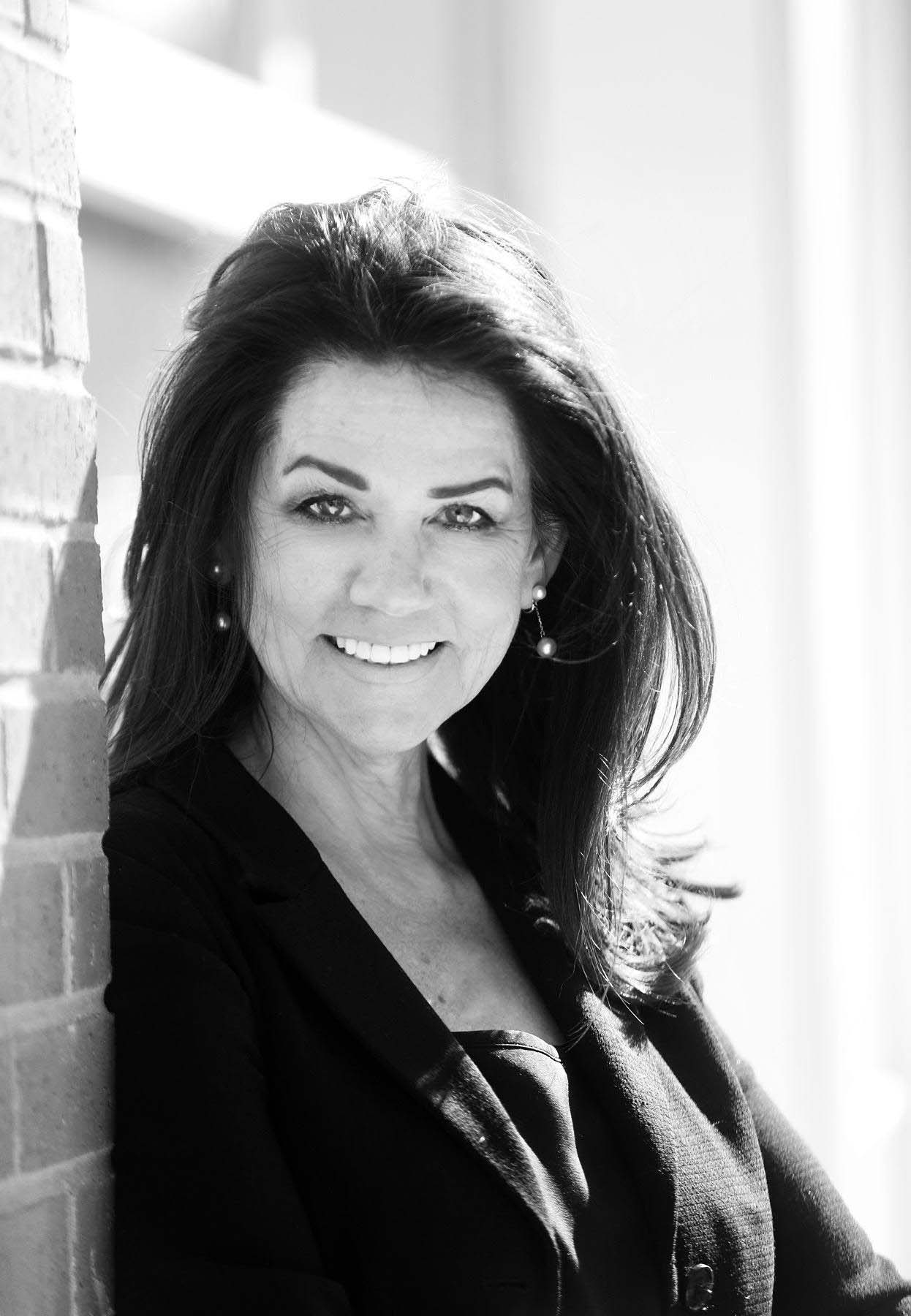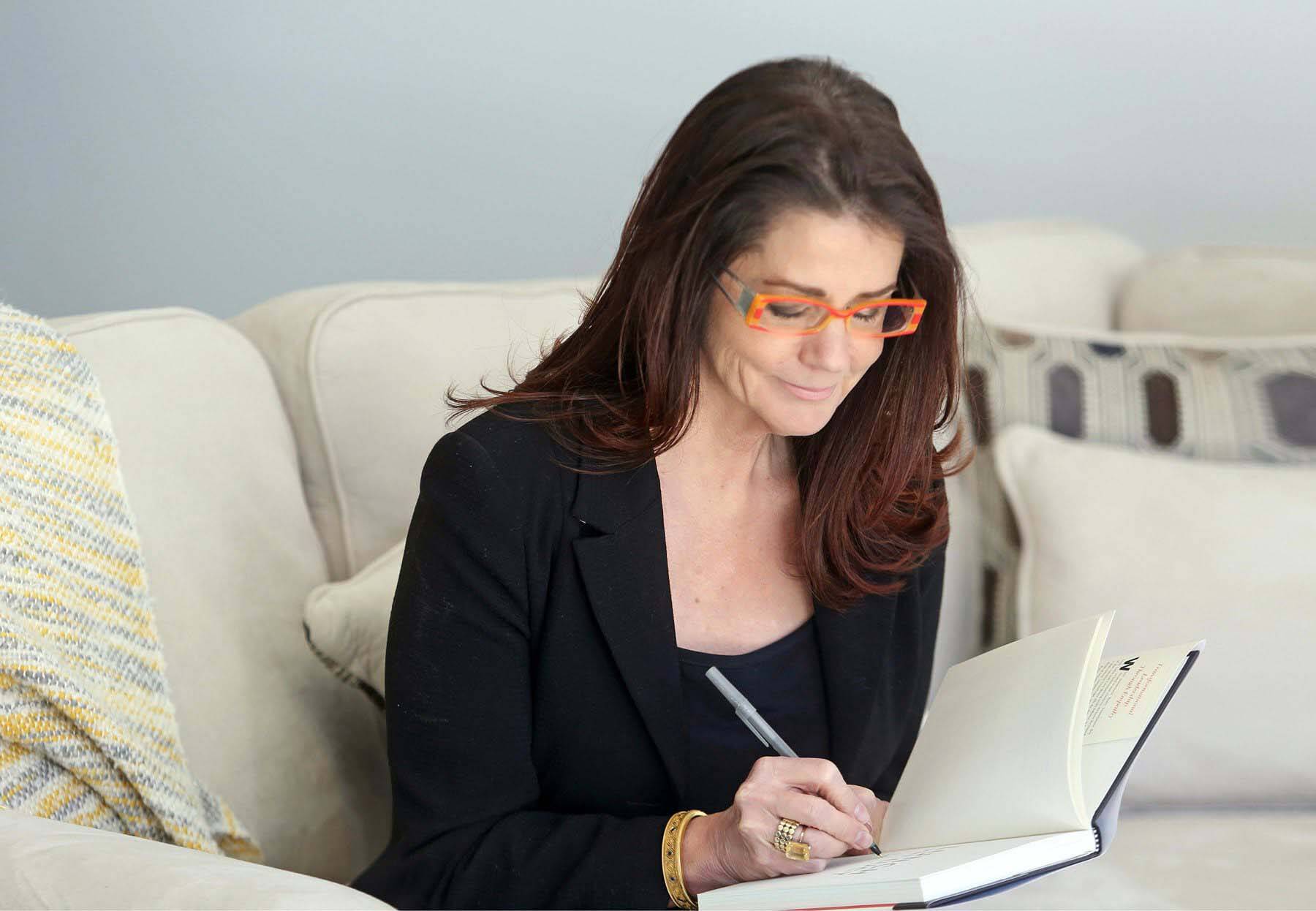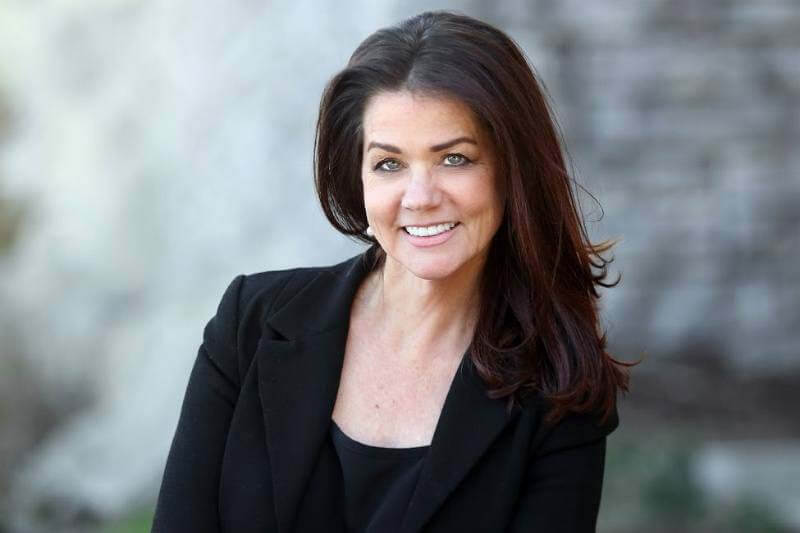Sherry Stewart Deutschmann has overcome the odds to create not one, but two successful companies from the ground up. Her secret? Creating a model of putting employees first — even before customers. A single mom who turned her basement business into a $40 million enterprise, her rags-to-riches story is nothing short of amazing. With the release of her book, Lunch with Lucy: Maximize Profits by Investing in Your People, she’s helping companies adopt her model of building revenue through healthier office culture. Meet our newest FACE of Nashville, the inspiring and impactful founder of LetterLogic and CEO of BrainTrust, Sherry Deutschmann.

What was your upbringing like, and what started you on your incredible entrepreneurial trajectory?
My family was all Jehovah’s Witnesses. They typically discourage education beyond high school, so I graduated from high school a year early and did what Jehovah’s Witnesses do at that point — get married and make it your advocation to knock on doors trying to create more witnesses.
I got married at 18. When they said, “You may kiss the bride,” it was my first kiss. I do not encourage people to try that! Along the way, I had a really bad marriage to an alcoholic, and then I decided to get away from him and religion and everything else. From there, I moved to Nashville to sing. I was on “You Can Be a Star,” which was the precursor to “The Voice” and “American Idol.” I passed the audition and came in third place in a show that had only three contestants — and I still thought I was going to be a singer! It was the year the Bluebird Café opened, and I went to the Bluebird every night that I could. Within two weeks, I realized I didn’t have the goods and started working on other things.
The only thing I had done up until that time to make money was cleaning houses; my sister and I had a route where we cleaned service station bathrooms. That, and I was a receptionist for my dad’s plumbing company. Those are the only things I’d ever done. So, I had no skills, no money, no assets, and I moved to Nashville anyway because I was delusional. It turned out my background of being a Jehovah’s Witness was instrumental in helping me get a foothold here because I got a job selling cars.
RELATED: 6 Nashville Entrepreneurs Share Their Best Advice
What was that like? Coming to a new city with little experience and not much else?
The first couple of years were very difficult. I was a single mom. I moved here with my little girl, and we did what we had to do, but I couldn’t afford daycare, a phone and electricity, so I didn’t have a phone and we had sporadic power. All my clothes came from thrift shops. I still shop at consignment and thrift shops because that’s my hobby now. It’s great stuff!
I ended up doing really well in sales, though, and getting to where I went from having so little money I couldn’t keep the lights on, to making six figures. I worked for a company that had bad customer service and a really poor product. So, even though I was the VP of sales, I spent all my time apologizing to customers. It was terrible because you become friends with your customers. I got sick of apologizing to them, and I had an epiphany one day about what our problem was, so I went to our boss and said, “Oh my gosh, I figured it out. I know why we suck!” He patted my hand and said, “You don’t know anything about business; just go sell another account.” Shortly after that, I did — but not for him. Instead, I went to work for myself. I cashed in my 401k, had a weeklong yard sale and sold everything I owned, and started there in my basement. Then I grew the business to $40 million. It was a lot of highs and lows — and running a company by the seat of my pants and common sense.

You found success through an employee-first model. Can you talk more about the thought process behind that?
I read the book Nuts! right before I started my company, and it was about Herb Kelleher, who started Southwest Airlines. His belief was, If I take really good care of the flight attendants, they’ll take care of the passengers and the passengers will be loyal. Then the loyal passengers will keep coming back. It was like a light bulb went off in my head; I really took his lead, and then I just thought about what I wanted as an employee. I wanted everybody to have a vested interest because most of the mistakes at my former company were because of human error. If people had just cared a little more, those mistakes wouldn’t have happened. So, I thought, How do I get them to care? I let them really benefit from what we do besides their salary. Then I created all kinds of benefits on top of that, which proved to them I was putting them first — like paying for all of their medical, dental, disability and life insurance; letting them bring their kids and pets to work; investing in their businesses if they wanted to leave us to start their own; helping them buy their first house with a gift of a down payment. There was also a net profit-share piece, which was huge, because at first, it was just like $7. But the last couple of checks I signed were for over $1,000 every month. It made it possible for just 50 employees to create a $40 million company because we worked harder and smarter. We didn’t have the turnover most companies do because people got there, and they wanted to stay; they knew they were loved.
The best way I can describe it is, there’s so much apathy among employees in general — disengagement because they don’t feel cared for — that it just leaves lots of holes and gaps. The latest Gallup poll says that 50 percent of employees are unhappy and looking for another job right now. I think what we did was create this thing where we were so tightly woven together that there was no room for that apathy to take hold. It was like the best possible investment, putting them first and taking care of their basic needs and paying a fair minimum wage. We could’ve paid a lot less than we did; our minimum wage was $16 an hour. The way we determined what it should be was to look at the two lowest-paid employees in our company and ask, “If they started dating and got married — with their joint salaries — in what neighborhood could they afford to live? Where would their kids go to school? Is it a safe neighborhood and can they play outside? Can they afford to have a real vacation? A lot of us take vacations for granted, but most Americans have never been on a vacation. So, from that model, we put the starting wage at $16 an hour. This was years ago when we could’ve paid way less. In today’s market, I don’t think $16 an hour in Nashville would cut it. But back then, it did, for people starting out.

What do you feel business owners should know about how to create an employee-first culture?
That’s the whole reason I wrote my book — to make business owners stop in their tracks and look at this as a really smart business model. It could be that I’m presenting this idea to somebody who has not a philanthropic bone in their body, who doesn’t care about the employees. But an employee-first model will make them more money. So, even if they don’t look at it as the right thing to do, they should look at it as a smart business move. My hypothesis is that even the Waltons would be more wealthy if they just took better care of their employees. They’re the richest family in the U.S., and they could pay double what they pay; they could pay $16 minimum wage and only have half as many employees because those employees would be more engaged and get more done. Because of that, they would make more money.
Tell us a bit about your newer company, BrainTrust.
BrainTrust was founded because of how pivotal I felt the Entrepreneurs’ Organization and the Women Presidents’ Organization were to my growth as a leader. And yet, you have to have $1 million in revenue to join, and you have to own more than 50 percent of your business. That cuts out 12 million U.S. women-owned businesses that don’t qualify. A lot of them are lifestyle businesses, but some of them are huge companies that are just at the starting gate. I built BrainTrust for them. Less than two percent of women-owned businesses ever get to $1 million in revenue — only five percent of men get there — and women get less than two percent of venture capital and profit equity. So, I created BrainTrust to help level the playing field. It’s a peer-to-peer membership where each woman is put in a carefully curated group with a maximum of seven other women. You need to be able to talk very honestly about real issues in your business and in your personal life. If you have a problem with your partner, you can bring that to the group because that’s affecting your ability to run your business. It’s looking at the entrepreneur as a whole person. Then those women, through experience sharing only — no advice ever — help each other through business challenges.

RELATED: A Groundbreaking Addition to SEC Sports: Meet Candice Storey Lee
What is the first piece of advice you would offer to a fellow entrepreneur who’s looking to create a healthier office culture?
The most impactful thing you can do is to listen and create formal and informal ways to listen to your employees. At LetterLogic, I would get myself a cup of coffee but make two cups. Then I would find somebody on the factory floor, take them a cup of coffee, and stand and talk with them for a minute to find out what was going on with them. On a more formal basis, I started something called Lunch with Lucy. On Wednesdays, I wasn’t Sherry, the CEO; I was just Lucy. Anybody who wanted to would sign up to have lunch with me. They’d choose the restaurant and whether they wanted just the two of us, or their department, or a husband or wife to go. A couple of guys even brought girls they wanted me to meet to see what I thought of them. But those lunches were about them. I found out about their hopes and dreams and what unique challenges they faced at home. You don’t know what people are dealing with before they walk in that door. I could’ve paid a consultant $30,000 to come in once a year to gauge the temperature of the employees’ happiness. Or I could just get it for the price of lunch.

What is the best piece of advice you’ve ever received?
It wasn’t so much advice as [it is] a famous quote from Madeline Albright, U.S. Secretary of State, who said, “There’s a special place in hell for women who don’t help other women.” I got to meet her the year before last. There’s no downside to helping other women succeed. When it comes to strictly advice, I would say it came from Matt Stevens, who’s my former COO. He said, “Major in the majors.” Figure out how you can make the biggest impact in your business and do all of those things; don’t be sidetracked by everything else. I often think in business, people diversify too early and they lose focus, and then they lose their shirts. So, find the one thing that makes you special and do it well.
Aside from faith, family, and friends, what are three things you can’t live without?
CNN. My home in San Miguel de Allende — I want to cry talking about it, it’s so beautiful. And I have weird, fabulous s*** all around my house, little pieces of art I’ve picked up around the world from junk stores and thrift stores that wouldn’t appeal to most people. But I love them. So, if my house ever catches on fire, it’s going to be me running out with a bunch of crazy stuff.
Thank you to Sherry Deutschmann for the insightful interview, and thank you to Leila Grossman for the beautiful photos.
**********
For more amazing local FACES in our archives, click HERE!



















